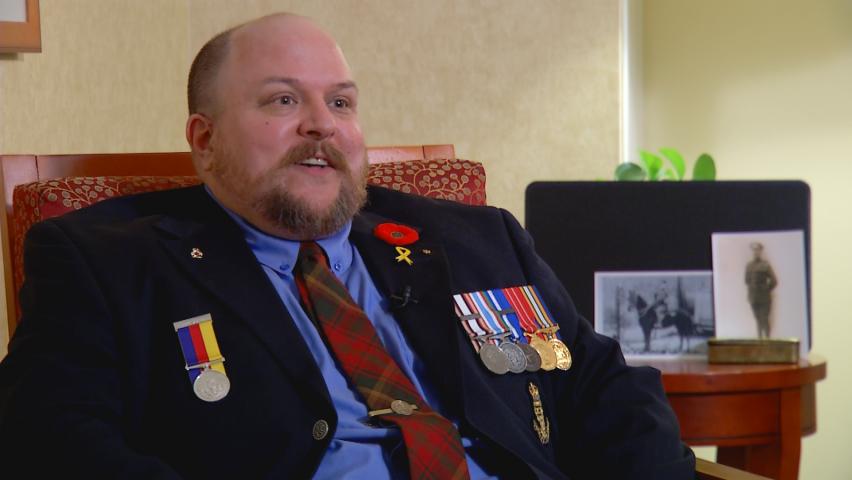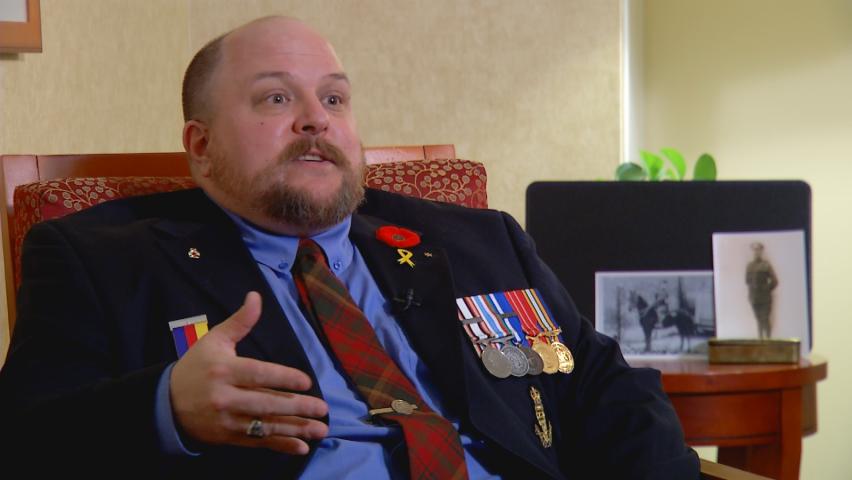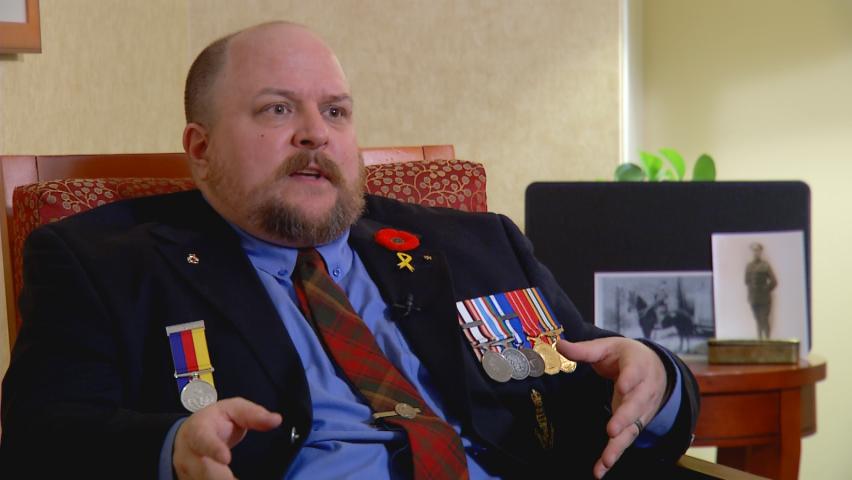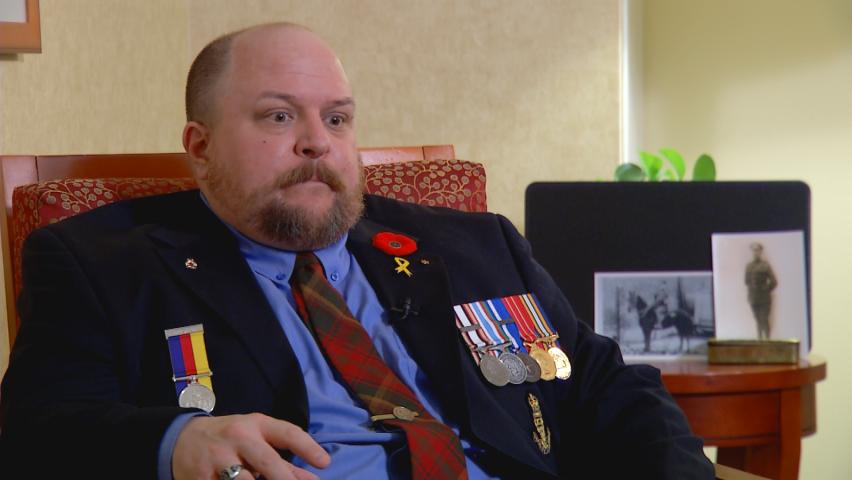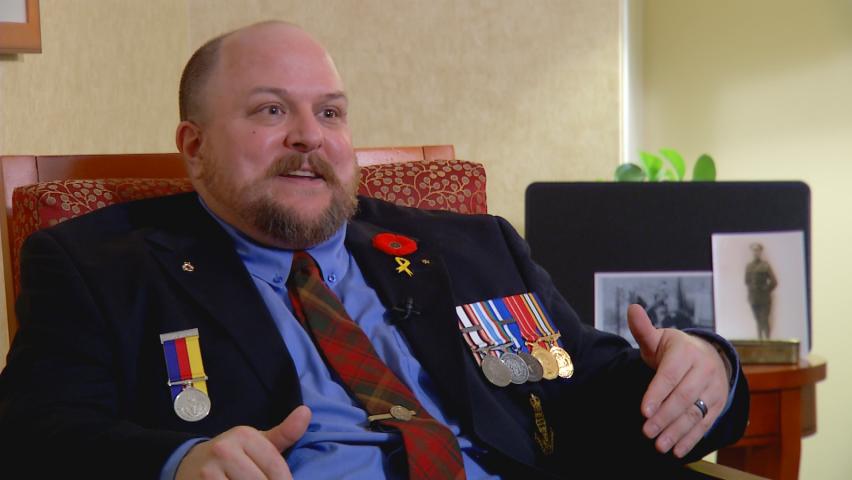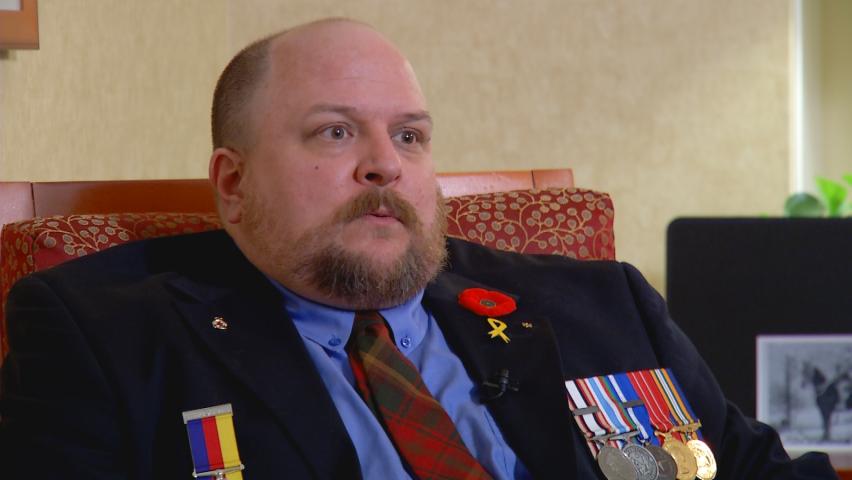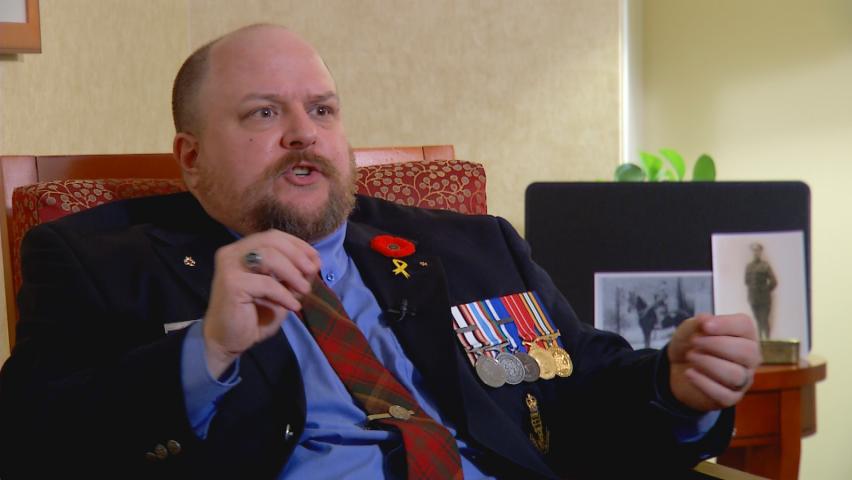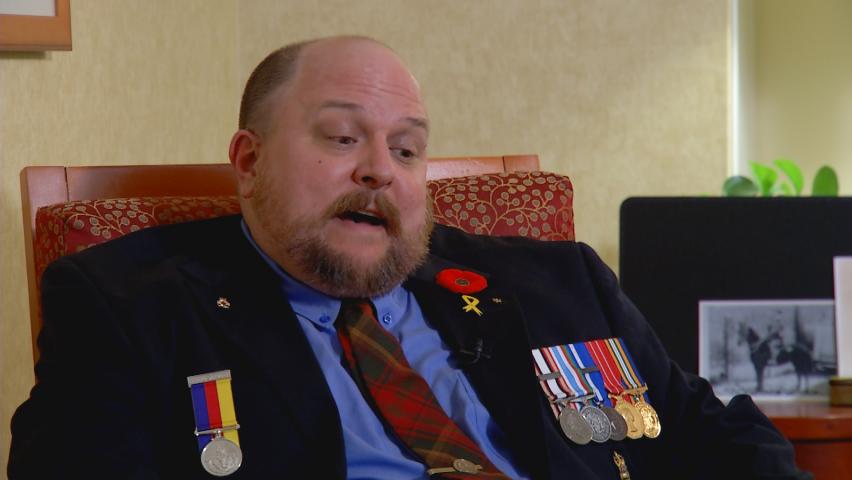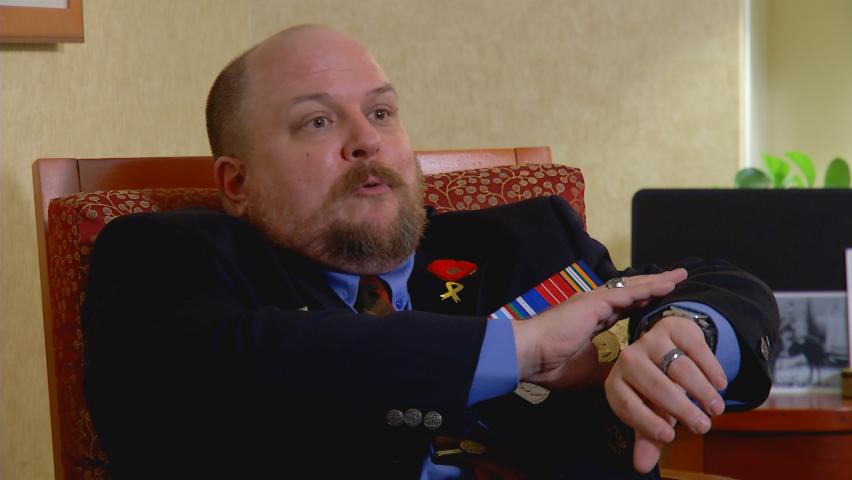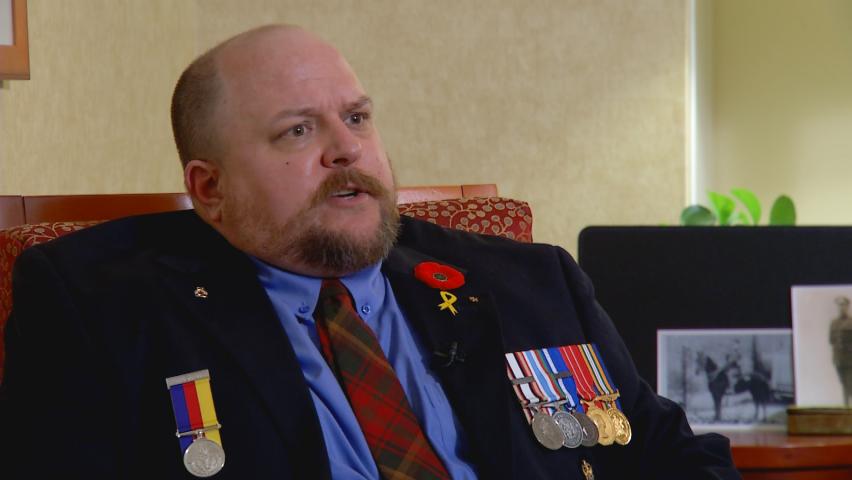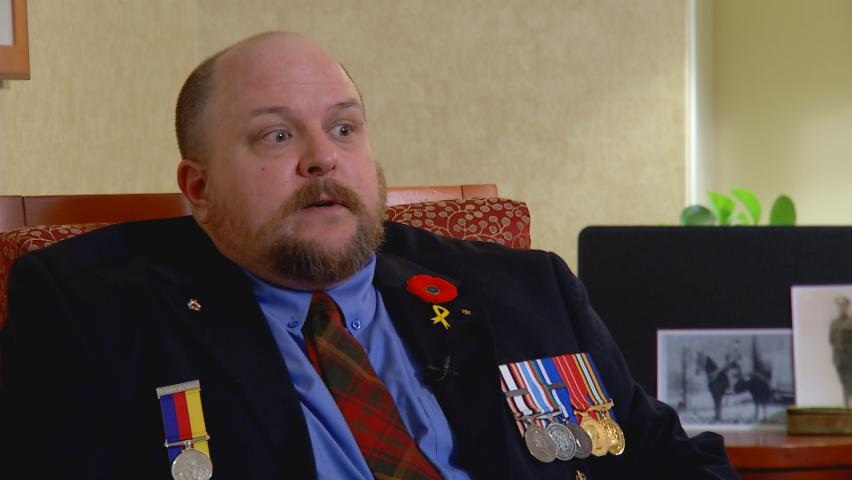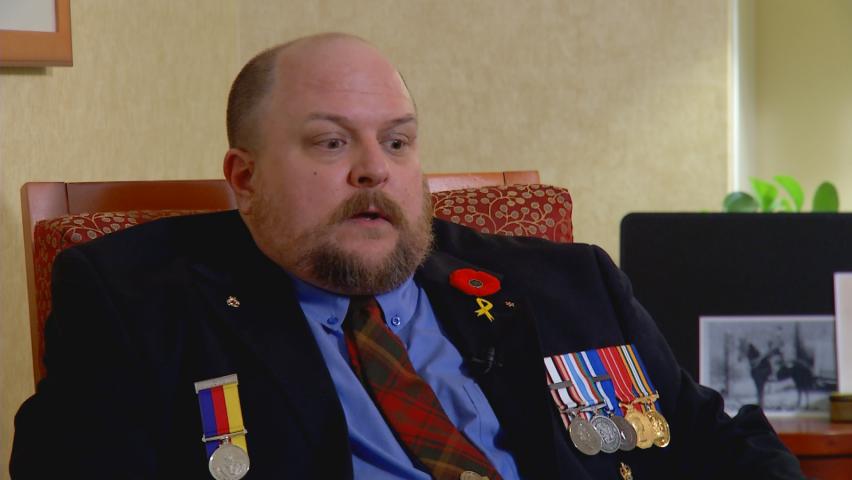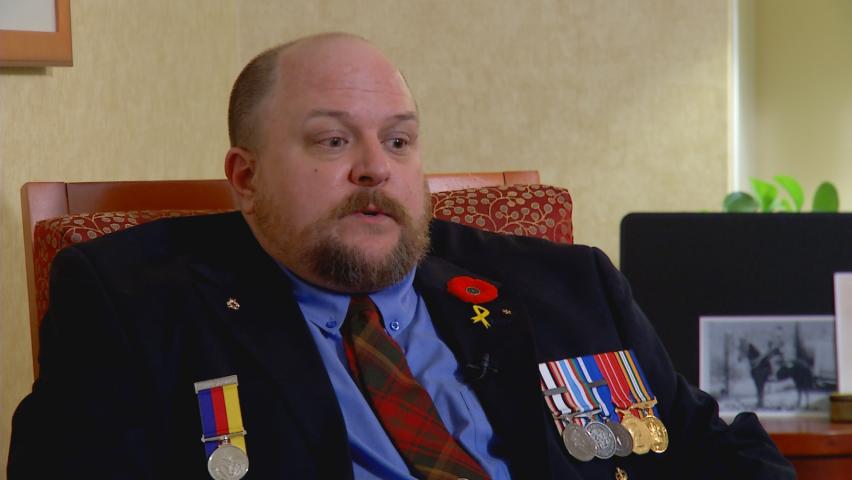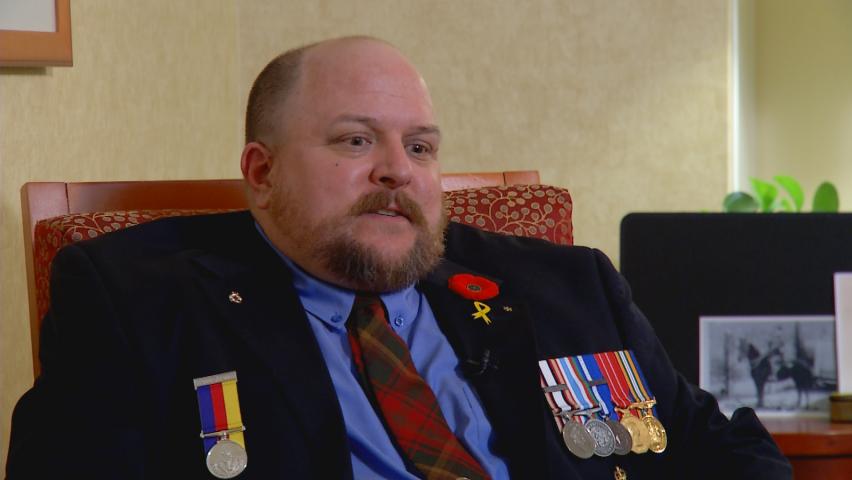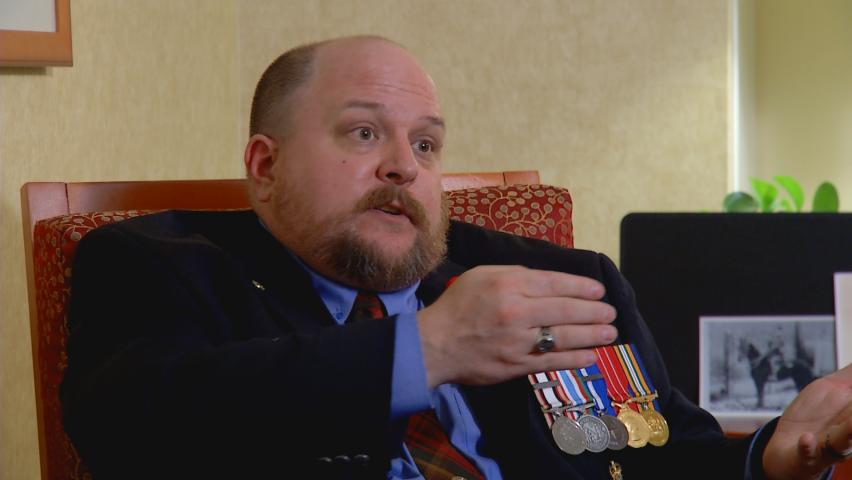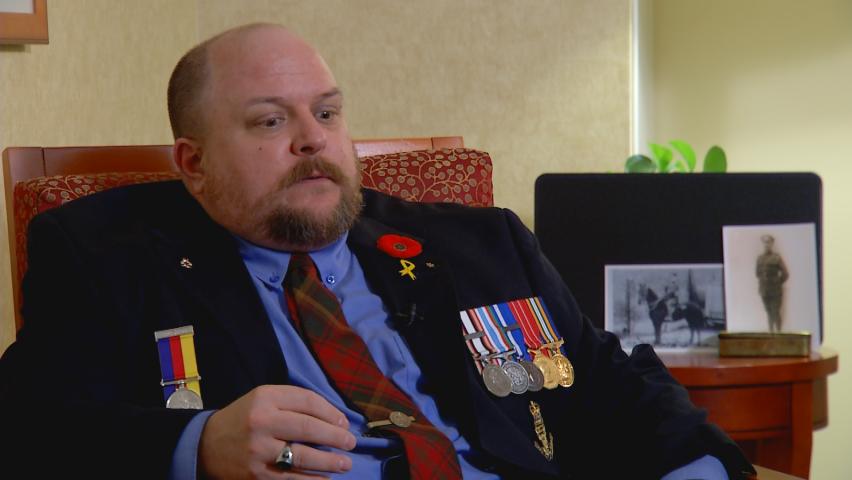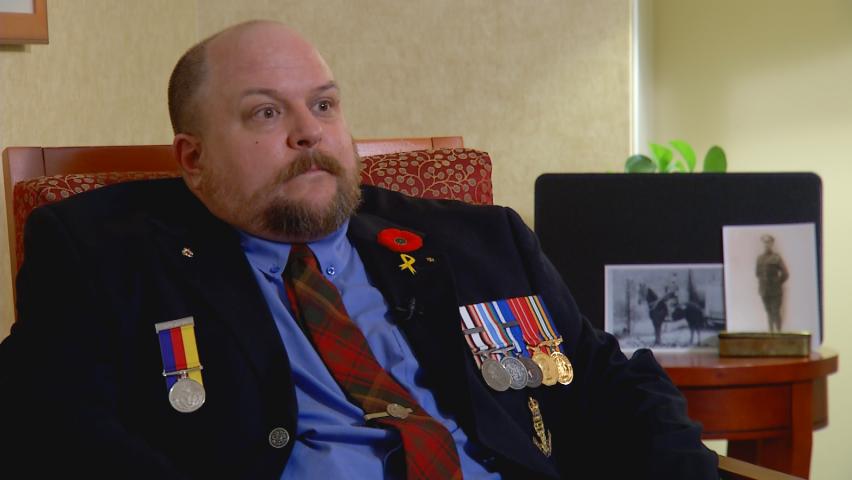Every reserve regiment has a regular force
representatives that come and help aid the
regiment in its’ training and in its’ organization
and its’ day to day business. And you usually
have a sergeant and a warrant officer
or a master warrant officer come out and
help along with the captain, to help guide the
reserves along the way because we are not
full time soldiers, we don’t do it every day.
So one of our regular support staff,
sergeants from the Strathcona Regiment,
Lord Strathcona’s Horse, had come back
from Afghanistan and, of course,
we were getting ready to go so we all
wanted to know what it was like and, you know,
Bruce, you barely got a word out of him but
it was like, “Hot, it was like Afghan hot,
you can’t understand hot until you
have been there!” And, you know,
I’m thinking to myself, we made a joke out of it,
every time someone said anything
to me it was like, “Well was it Afghan hot?”
And Bruce would laugh, he was like,
“Laugh it up, laugh it up, you’ll see what
I am talking about!” And we did.
I was trained as an armoured guy.
I was in AVGP Cougars throughout my
training in the militia in the reserves and
I was a crew commander, I was a troop
warrant looking after a group of soldiers
in the tank troops. When I went to Bosnia
I went as an infantry section commander.
That was a very different environment.
I had to learn everything new and deploy there.
Then when Afghanistan came up there is
only so many positions that were available.
While I was deployed in Bosnia I took a
course called, “Introduction to PSYOPS”
and it sounded fancy, it sounded really neat.
I was interested in what it meant and
we learned that PSYOPS is basically
psychological operations which is a fancy
term for propaganda. When I try to
explain it to my friends they would say,
“Oh you’re five o’clock Charlie from M.A.S.H.!”
A plane used to fly over and drop the leaflet
bombs so basically that’s what we did.
But I had an interest in it and there was
positions available so I put my name in.
Afghanistan started a lot of training,
a lot of shooting, a lot of drills, a lot of
getting all the skills up to where they,
levels they needed to be and
learning your team. I took a number of
courses including the PSYOPS course
out of Montreal; really important new role,
very new to the Canadian Forces,
it had been around for hundreds of years
but not really understood or known.
Getting into the training with the battle
group, we deployed with 1st Battalion PPCLI
and we were the first time they had ever
worked with psychological operations.
And so, there was some confusion,
there was some lack of understanding of
what our role and what our team could
bring to the table. So that took a bit of workup
training to get that information in and get
that information understood with all the
players that we were dealing with but still
it was difficult getting there.
You get off the plane and they lower the
ramp on the Hercules because we fly to
a third location, we would do a set up
there and get on the Herc and then we
would fly into Afghanistan.
And the Hercules would come in and
you’d land and the ramp would drop and
it was like someone punched you in the
gut with the heat. It was just this completely
solid mass of heat that would hit you.
It was 8:30 in the morning I think when
I landed and I was overwhelmed by the
heat and this was January and I’m
thinking of dear God, this is going to be crazy!
By August, you know the thermometer
stopped at 9 o’clock in the morning and
it was at 60 degrees Celsius and, you know,
that was ten o’clock in the morning,
or nine o’clock in the morning, you know
by two o’clock in the afternoon
you’re hitting peak season,
I mean what is the temperature?
Anyone’s guess is as good as mine but
with all your body armour on and
everything else. Most soldiers lost about
20 pounds of weight in water alone;
everybody, just in water because of the
heat over there. You’re wearing a ballistic
vest with ceramic plates in it so you’re
carrying an additional fifty pounds of
protective equipment plus your helmet.
You’ve then got your ammunition vest on
with all of your ammo and grenades and
all your water bottles and all your equipment.
You know by the time you are done,
ballistic goggles on and you wore gloves
because you didn’t want to touch bare metal
with your hands because it was so hot
you’d burn your hands on your own
weapon or the vehicle. The place is like the
surface of the moon. You expect that there’s
no life in the place and then you would turn
a corner and there would be a tortoise
walking around the desert and you’re
shocked there’s a desert turtle.
Here it is and it’s a big-sized turtle and
I’m thinking things can live here and
then you would see birds. You would see
little field mice, you would see scorpions and
spiders and snakes and all the other
fun animals that no one liked. When their
own environment is trying to attack you,
it’s a pretty nasty place.



